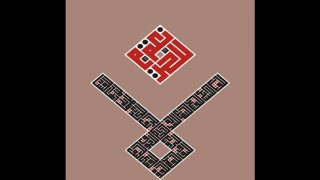Over there. There where Syria's prisons have turned into human slaughterhouses, where thousands of political prisoners and opponents have been executed and unspeakable crimes are committed, that’s where Ahmad (30) waited for three long hours to find out what had become of his friend Hayan (26).
Squeezed into that small cell along with Ahmad, were more than ten young men, half of them standing up so the other half could sit and rest a bit. Worry consumed Ahmad because Hayan been taken away by interrogators at Saydnaya prison, infamous in Syria for the killing and degradation of detainees.
Ahmad’s terrifying thought process was cut short by the opening of the iron door. Hayan was kicked into to cell. He fell to the ground with his mouth and nose dripping blood, face full of bruises. Ahmad rushed to help him and started wiping off the blood, using a piece of cloth kept always clean for this purpose.
Hayan looked at his friend Ahmed with a flash of tears and despair in his eye. He said, “To the jader my brother Ahmad. To the jader.” The detainees were astonished, the place sank in silence until one of them said “Allah is sufficient for us, and He is the best disposer of affairs.”
The word jader alone was a source of terror for the detainees, but many people are unaware of what it means. Under normal circumstances, the term refers to a large piece of plastic sheet, often used as car covers, and sometimes to make tents. Today it has become associated with an execution method created by the regime's executioners inside the infamous prison of Saidnaya. Many prisoners have been executed there using this technique, which gives executioners the dark pleasure of imposing maximum suffering before eliminating the detainee. Typically, the detainee is called upon, bound and blindfolded, and taken to the jader room, the last place the detainee enters alive.
The detainee is placed in the middle of the room, loosened from his restraints and then covered with the jader, which is fixed tightly to the four corners of the room so that the floor becomes covered by this plastic sheet. And here the regime’s executioner undertakes one of the most heinous crime history has ever known: the murder of an innocent soul.
This is where those who dared to call for freedom and dignity — lacking in Syria for decades — meet their end. The executioners begin beating the detainee with all their might, stopping only to brag about who is stronger and achieves more direct hits. The detainee's blood starts to blur his features, bones shatter, screams rise and fall as death slips away, but they continue to beat him.
These predatory monsters specifically chose to use the jader because it’s a perfect insulator, so the detainee’s blood would not splash, but rather flow silently on the ground without annoying those monsters. The detainee turns into a piece of meat and ends up in a mass grave somewhere, according to the testimony of survivors of Sadnaya prison, among them Ahmed.
Another survivor, Amer (32), told SyriaUntold his biggest fear while at Sadnaya was that he would be executed with this method.“They used to take take one or two people every day to the jader. They would yell as loudly as possible: ‘to the jader, come.’ We would be terrified,” he said. Amer was released from Sadnaya in 2016 and now lives in Germany where he is receiving treatment for the disabilities he developed as a result of ill-treatment while in detention.
Back in Sadnaya, Ahmed looked at his friend Hayan with sorrow, as he stuttered and struggled to describe the severity of what lay ahead.
No exceptions
Hayan was from the city of Homs, a graduate of the mathematics department of the Baath University. He was arrested for trying to defect from the regime's army after being taken for compulsory service in late 2014. His outstanding morals and fragile body were disregarded at the time of his sentencing. The regime made no exceptions. There was no commutation of his sentence.
In the Sadnaya cell, Hayan wiped the sweat from his forehead and slowly caught his breath. He told his firend, “My destiny is now known, I’m gonna die. I wish you a better fortune than mine. My wish, should you get out of here is alive, is that you go to my mother and tell her not to be sad. I have wished to die a thousand time before being a soldier fighting for this traitorous regime. I wished to die a thousand time before being a slaughterer like them, a killer for my countrymen. Now my wish has come true.”
Hayan had been about to marry his fiancée Maha (25). He had fought hard for her hand; her parents rejected him many times but in the end they said yes out of respect for Hayan’s great love and the will of their daughter. He dreamed of having a lot of children, to settle down and enjoy a quiet life teaching maths. His dreams would not materialize. Instead, he was headed for the worst possible fate: execution at the jader. This was not the outcome of the decision of the judiciary or a military court. It all boiled down to the mood of the investigator who knew the charges and decided the fate of every detainee presented to him. “You want to betray your country and your leader, you damn terrorist, you want to desert the army, you fu** bastard, you son of a bi***?”And so on.
Torture parties
Such rants reflected the low morals, brutality, and inhumanity of the investigators. These statements were always accompanied by a lot of beatings and insults, followed by torturte parties. Whether a new detainee or an old one, not a single day would pass without a detainee getting a whipping or being hanged from the ceiling at least for two hours. Some of the detainees were elderly or suffering from certain diseases and could not tolerate torture. They would wither away quickly and be reduced to corpses.
Believe me, my friend death is a lot easier from all this suffering we go through every single day.
It was the detainee’s greatest wish to experience a painless death, to end their suffering with a bullet in the head, or even to be hanged or slaughtered. But even that was an impossible wish, because no one is allowed to die before suffering all kinds of torture, so he’d have the slowest death.
That night, Ahmad and Hayan did not sleep a wink. They looked at each other the whole time in an attempt to bid a wordless farewell. Ahmed tried to calm Hayan down, although he couldn’t find the words to make him feel better under the circumstances. "Don’t be sad, after the first blow on the head you will not feel anything. You will die and go up to heaven, whereas we will stay here to be tortured and humiliated every day. Believe me, my friend death is a lot easier from all this suffering we go through every single day."
Hayan interrupted him saying: "You have to be patient my brother. Who knows? Maybe you will walk out of here alive. God is generous"
How Ahmed wanted to burst out crying but he held back for the sake of his friend. At 9 am, the cell door opened for a new round of torture. All the detainees were taken out except Hayan, who was taken alone to his inevitable fate.
Hours passed. Ahmed weathered countless beatings and insults, only to return with his comrades to their cell in a pitiful condition, every part of their naked bodies in pain. On the way, they passed by the jader room, where blood was still flowing out. The door was open and Hayan’s corpse was still there, reduced to a pile of meat underneath the jader.
Now Ahmad could finally cry. Hayan was no longer alive and able to witness his weakness and despair. He cried and cried silently without knowing the exact roots of his sorrow. Was it due to the destiny of this polite and guiltless young man, who died in the most hideous way? Or was he sad for himself, no longer able to bear all that oppression, humiliation, and pain. Or maybe the tears were for his wounded homeland, in which the villainous ones rule over the honorable, hold their lives in their hands.
Today Ahmed, a lawer by profession and native of Aleppo, lives in the United States as a refugee. He was arrested in 2013 for participating in peaceful demonstrations and spent the next three years in prison. He entered Sadnaya as a regular human being but came out in ruins.





